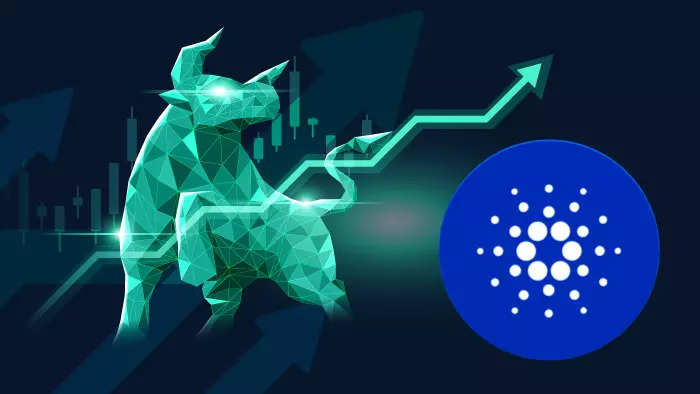Cardano has risen 150 percent in a month to become the third largest cryptocurrency.
On Monday, Cardano (ADA) price hit a new record of $2.91, raising anticipation that the larger market rally, combined with its planned network upgrade, may help it cross the $3 level for the first time in its history.
This year, ADA surged more than 1,300 percent, surpassing Binance Coin as the third most valued cryptocurrency. The latest increase is mostly attributable to Charles Hoskinson's public blockchain's network upgrade nicknamed "Alonzo," which would commence smart-contract capabilities, a technology that eliminates the role of intermediaries.
Cardano's price reached an all-time high of $2.41 in May, but it was unable to maintain those gains due to a lack of smart contract capability. Cardano's blockchain would be in a strong position to grab demand from DeFi marketplaces after the September 12 upgrade, and compete with Ethereum, the most widely used blockchain in terms of smart contract functionality.
What is a smart contract, and how does it work?
On the blockchain, a smart contract refers to a computer programme or transactional process. When certain conditions are satisfied, these apps execute automatically. The blockchain network becomes a programmable platform that can host various apps with the aid of smart contracts. In the cryptocurrency and its subclass DeFi markets, smart contracts have become a game-changer.
Cardano's public blockchain network will benefit from the Alonzo improvement, allowing it to become a prominent player in the expanding DeFi marketplaces, which include NFTs, decentralised exchanges, gaming, lending protocols, and more.
Why is Charles Hoskinson's blockchain network taking so long to implement smart contracts?
Cardano took a methodical approach to expanding the network and tackling challenges that its top two competitors faced in previous years in order to make it more scalable, secure, and effective.
Ethereum has been able to move more quickly, and its network now controls 80% of the DeFi sphere market. Users, on the other hand, have been grumbling about the rising fees and network congestion. With its impending ETH 2.0 upgrade, the most widely used blockchain network hopes to fix those shortcomings.
Meanwhile, Cardano's transformation team, Input Output Hong Kong (IOHK), has been meticulously improving the network through numerous developmental phases, including the fundamental phase Byron and the decentralised phase Shelley, which believes in comprehensive study and testing.
The upcoming Alonzo hard fork has also undergone extensive testing, including color-coded testing phases like White, Blue, and Purple, which were created to accommodate more testnet users. Hoskinson stated Alonzo Purple was "a lot smoother than Byron and Shelley" in a Twitter video.
Why have smart contracts become so important?
Cardano isn't the only project racing to develop smart contract features that will appeal to DeFi and other new platforms. Because the DeFi ecosystem has already surpassed $100 billion in market capitalization, several other blockchain networks are also working hard to reach that milestone as quickly as possible.
The fact that the expanding industry provides a lot of room for new participants helps to fuel the smart contract race. According to State of the dApps, which analyses decentralised applications, Ethereum currently powers 80% of dApps.
Because the DeFi system is poised to disrupt a slew of well-established businesses, including lending, betting, trading, and a slew of others, the profit potential for blockchain networks that enable smart contract capabilities is enormous. Furthermore, the expansion of decentralised exchanges, liquidity mining, yield farming, and reward systems is expanding the market.
The broader market rally could add to gains
The price of bitcoin has surpassed $50,000 for the first time in three months, while altcoins have pushed the whole cryptocurrency market cap to $2.16 trillion.
The market rise, which began on Sunday, is mostly due to PayPal's decision to allow U.K. users to purchase, hold, and sell cryptocurrencies, a service that has been available to PayPal's U.S. clients since last October.

